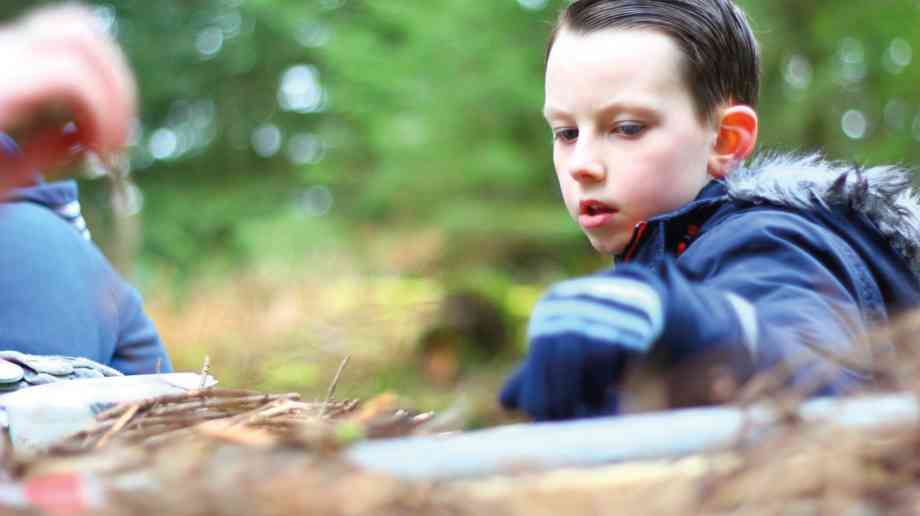
The life-changing benefits of outside learning
Many schools need to re-align their understanding back to the basic principle of a school trip – to bring a sense of experience and enjoyment to learning. Gill Harvey of the School Travel Forum explores the benefits of cross-curricular learnings in an outdoor setting.
It’s undeniable that school trips have a positive impact on children’s lives, their academic potential and understanding of the world. From boosting their confidence to improving their relationships with their peers and teachers, the interpersonal and educational benefits of these experiences cannot be overlooked.
With schools taking an average of 2.7 educational visits per year, teachers continue to be a huge driving force behind the commitment to enabling students to learn in the context of the big, wide world. Yet, many teachers need support to handle the administrative burdens of arranging these trips and to ensure that they provide the quality of safety and education that parents, schools and pupils deserve.
Cutting Through the Red Tape
Fortunately, help is at hand. The work of the Council for Learning Outside of the Classroom (CLOtC) and the School Travel Forum (STF), means that schools can count on providers that have been assessed as compliant with the high standards of the LOtC Quality Badge.
Through this easily recognisable kite‑mark, teachers are saved the burden of hours of painstaking red tape and can rest assured that their provider offers only independently audited safety and quality standards.
Financial security is also a benefit, as all STF Assured Members are required to work so clients benefit from the protection of the Package Travel Regulations and additionally, they must be members of approved schemes ensuring fair trading and full financial security.
Learning in a Real-World Context
Teachers know that by taking education beyond the classroom, it becomes possible to make learning concepts more relevant by setting them in a more realistic context. Pupils that have previously struggled to grasp concepts can find them much easier to understand and as a result feel more engaged and motivated in their studies.
Therefore, it’s not surprising that 84 per cent of teachers according to the recent Learning Away survey said that they wish they could take more school trips because of these powerful benefits in the classroom.
As Ofsted stated: “When planned and implemented well, learning outside the classroom contributed significantly to raising standards and improving students’ personal, social and emotional development.”
Clearly, such an important asset in the teachers’ toolkit to benefit their pupils’ cognitive and interpersonal skills cannot be hampered by concerns over risk and liability issues, especially when third parties such as the STF exist to provide solid reassurance.
Confidence and well-being
The improvement of social skills following a successful school trip is dramatic; Learning Away’s recent survey of UK schools found that 87 per cent of students felt more confident trying new things, whilst 60 per cent of teachers noticed increased confidence, resilience and well-being. Learning in a real‑world context in unfamiliar environments can also spark a life-long love of travel, exploring and understanding new cultures and as the saying goes, travel definitely has the potential to broaden the mind. More specifically, such positive experiences whether in the UK or further afield, can boost engagement in the classroom and provide a bridge to further and higher education by igniting students’ previously untapped passion for their subjects.
Building Life-long Memories
These UK-based statistics on the profound benefits of LOtC provision are backed by worldwide research. These white papers indicate that high quality school trips, which are adequately planned and followed up, offer students opportunities to develop their knowledge and skills in ways that add value to their everyday experiences in the classroom. Specifically, outside learning can have a profound impact on long-term memory due to the memorable nature of the fieldwork setting. With this legacy in mind, it’s worth taking steps to ensure that children can hold life-long memories of their school trips for all the right reasons.
Benefits to School Life
Looking at the lasting impact of LOtC experiences in terms of academic performance, Learning Away’s recent research found that school trips resulted in higher academic achievement, with 61 per cent of students achieving higher than their predicted grade following a school trip based on the subject area. Parents also witnessed a long-term impact, with 23 per cent of parents reporting better school attendance.
Importantly, 71 per cent of students felt that their teachers better understood their learning habits and knew their teachers better, whilst 70 per cent reported getting on better with their peers. In the same survey, 84 per cent of teachers stated that LOtC improved their relationships with their pupils. With these far-reaching benefits to all aspects of school life and academic achievement, the case for providing increased opportunities for outside learning has never been stronger.
Cross-Curricular Learning
The cost of school trips is a topic often discussed in the media (often in an inflammatory way, which doesn’t reflect the fact that the vast majority of school trips take place in the UK and Northern France).
Obviously parents want to ensure that they are paying for the most rewarding experience possible for their child, which is why many trips are structured to provide cross-curricular benefits. With affordable trips to European cities offering children the chance to advance their language skills, appreciate architecture or learn more about art, history and politics, this money represents an investment in a child’s appreciation of the wider world and an understanding of many topics in one fell swoop.
Similarly, the chance to undertake a trip any of the LOtC-badged centres in the UK, whether the focus is on STEM, history or politics etc, there is always the scope of such trips to be planned to enhance students’ understanding in a variety of subject areas.
Overcoming Barriers to LOtC Provision
Returning to the subject of teachers needing more support to take the stress out of arranging school trips. Feedback from teachers on their main concerns must be taken seriously. Learning Away’s recent survey showed that 64 per cent of teachers have concerns over safety and risk when organising a school trip, whilst liability was rated a burden by 56 per cent of teachers and paperwork was seen as a barrier by 48 per cent of respondents.
Booking issues were also viewed as an obstacle, causing problems for 29 per cent of teachers surveyed. Worryingly, statistics from the STF’s 2015 survey showed that 22 per cent of school trip organisers opt to make their own travel arrangements and bypass the quality, safety and financial security benefits of travelling with a badged provider. Our role going forward, is to help all teachers (and particularly those still taking a DIY approach) to easily find providers offering reliable and regularly audited safety and quality standards.
Further Information
www.schooltravelforum.com
Latest News
19/12/2025 - 09:54
The Education Committee has expanded its ongoing inquiry into the early years sector to examine how safeguarding can be strengthened in early years settings.
18/12/2025 - 09:25
The UK will be rejoining the Erasmus programme in 2027, following a package of agreements with the EU.
17/12/2025 - 09:31
Ofqual has fined exam board Pearson more than £2 million in total for serious breaches in three separate cases between 2019 and 2023 which collectively affected tens of thousands of students.
16/12/2025 - 09:19
The average funding rates will increase by 4.3% for under 2s, and by almost 5% for 3-and-4-year-olds.
15/12/2025 - 10:30
Local colleges are set to receive £570 million in government funding to expand training facilities in areas such as construction and engineering.







